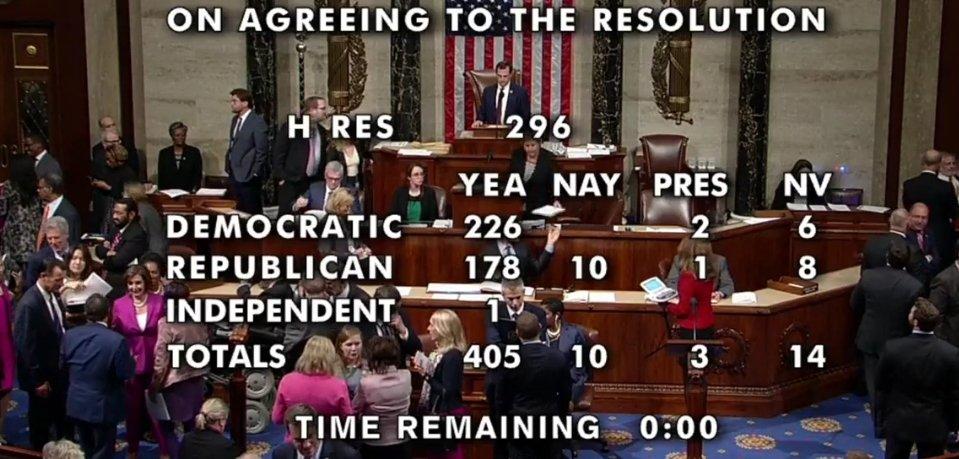Turkey 'Double Whammy': US House Recognizes Armenian Genocide, Approves Sanctions Over Syria Incursion
Late in the day Tuesday the US House of Representatives voted overwhelmingly in favor of adopting a historic resolution recognizing the Armenian Genocide. This, it should be noted, on the 96th anniversary of the founding of Turkey as a republic no less.
And in another major simultaneous "gift" to Turkey's Erdogan — what headlines are already calling a "double whammy" — the House also voted overwhelmingly to approve a biting sanctions bill that if signed into law would crush Turkey's economy and target Erdogan's financial assets personally over his controversial military incursion into northern Syria.

Ankara has for years successfully lobbied against any such Congressional resolution on the 1915 Armenian genocide, treating it as an embarrassing and grievous wound to its reputation, also given the severe censorship within the country over this chapter in modern Turkey's history.
It's de facto illegal in Turkey to even acknowledge it, and over the past years multiple journalists, Armenians among them, have gone to jail for writing about the historic mass killings.
Turkey's Ministry of Foreign Affairs was quick to condemn the resolution, H.R.296, dismissing it as a "delusion" of the "Armenian lobby and anti-Turkey groups" and further that it will only serve to damage future US-Turkey relations.
The measure recognizes the systematic killing of 1.5 million Armenians by Turkish military forces of the Ottoman Empire from 1915 to 1923. It also recognizes other Christian groups exterminated by Turkish Muslim forces, including "Greeks, Assyrians, Chaldeans, Syriacs, Arameans, Maronites, and other Christians," according to the resolution's text.

The Congressional text is scathing in its condemnation, beginning with:
Affirming the United States record on the Armenian Genocide.
Whereas the United States has a proud history of recognizing and condemning the Armenian Genocide, the killing of 1.5 million Armenians by the Ottoman Empire from 1915 to 1923, and providing relief to the survivors of the campaign of genocide against Armenians, Greeks, Assyrians, Chaldeans, Syriacs, Arameans, Maronites, and other Christians;
Whereas the Honorable Henry Morgenthau, United States Ambassador to the Ottoman Empire from 1913 to 1916, organized and led protests by officials of many countries against what he described as the empire’s “campaign of race extermination”, and was instructed on July 16, 1915, by United States Secretary of State Robert Lansing that the “Department approves your procedure … to stop Armenian persecution”;...
And ending with:
Resolved, That it is the sense of the House of Representatives that it is the policy of the United States to—
(1) commemorate the Armenian Genocide through official recognition and remembrance;
(2) reject efforts to enlist, engage, or otherwise associate the United States Government with denial of the Armenian Genocide or any other genocide; and
(3) encourage education and public understanding of the facts of the Armenian Genocide, including the United States role in the humanitarian relief effort, and the relevance of the Armenian Genocide to modern-day crimes against humanity.
Concerning Syria, the successful sanctions vote in the House was also meant as a rebuke not only to Erdogan for his ordered attacks on Kurds, but to Trump, after the recent Pence-brokered ceasefire deal and US draw down from border areas, touted by Trump as a great achievement toward peace.
oh man, she all lives matter'd the armenian genocide https://t.co/y7jLjAJwYy
— Bobby Lewis (@revrrlewis) October 29, 2019
The president is not expected to sign into effect any new sanctions related to 'Operation Peace Spring,' barring a major development or egregious and significant Turkish breach of terms of the US-brokered ceasefire.
https://ift.tt/2WnErfu
from ZeroHedge News https://ift.tt/2WnErfu
via IFTTT




0 comments
Post a Comment